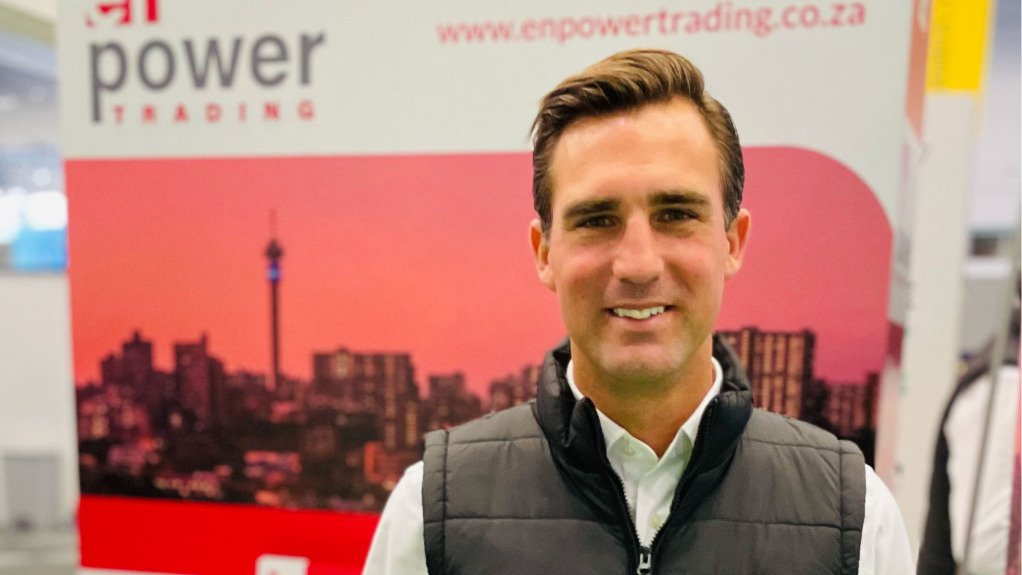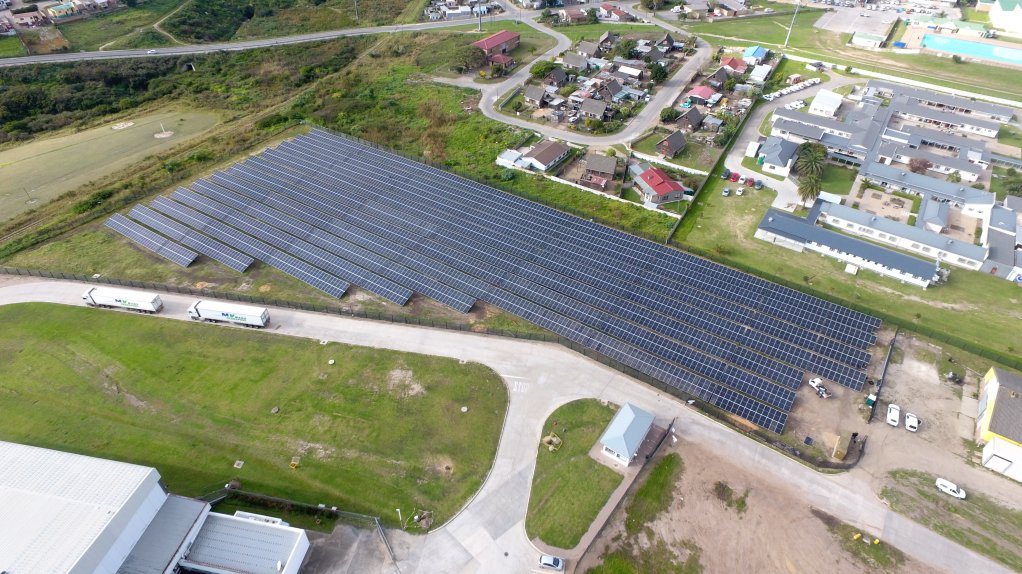Regulator-licensed South African electricity trader Enpower Trading is promoting wheeling and trading over municipal networks as a way of combatting the trend of “off-grid flight”, which poses a threat to electricity income that can contribute more than half of a municipality’s overall revenues.
There is a growing demand from independent power producers (IPPs) and traders to transport, or wheel, electricity across both Eskom and municipal networks and such demand is expected to grow in light of reforms that could result in IPPs and traders seeking multiple customers for their surplus generation.
Municipalities are also receiving an increasing number of wheeling applications from local business, but the current absence of a national wheeling framework, the development of which is being prioritised by the National Energy Crisis Committee, means there are currently no clear guidelines, and many municipalities also lack the skills to conclude such agreements with either IPPs or traders.
Enpower Trading CEO James Beatty says municipalities are justifiably concerned about entering into lopsided agreements that could further deepen their financial challenges and accelerate utility death spirals.
At the same time, however, there is a growing risk of losing rate-paying customers as a result of grid defection, which Enpower describes as off-grid flight.
“If the energy is not flowing through the grid, the municipality can’t generate income from it,” Beatty highlights, adding that such defection is also resulting in less income to support indigent communities.
It is also negatively affecting affordability for those who remain grid-connected, as there are fewer customers to share the grid costs.
“In most instances, customers are leaving the grid because the energy has become too expensive and unreliable. If a lower-cost and cleaner alternative can be provided, businesses and households will stay connected.”
Enpower Trading, which is one of only a handful of electricity traders currently licensed by the National Energy Regulator of South Africa, believes a revenue-neutral energy trading model can play a role in curbing such defection and is currently engaging with some 60 municipalities on the concept.
The model has been designed, Beatty explains, to ensure that a municipality retains both its customers and its electricity revenue surplus by facilitating the purchase of cheaper and cleaner electricity from IPPs.
The municipality enters into a Use of System Agreement with Enpower, which includes a wheeling tariff that is priced to cover the municipalities network costs and sustain any surplus revenues generated from the asset.
Enpower Trading, rather than the municipality, contracts with the IPPs, eliminating the need for a procurement process, and is also responsible for collecting payment for wheeled energy from customers.
The company’s first live and operational transaction was concluded with the George municipality, in the Western Cape, and involves trading power from SolarAfrica Energy’s 1.8 MW George-embedded solar plant to four low voltage-connected customers inside the George distribution grid.
Enpower Trading has entered into a power purchase agreement (PPA) for 1 MW of the solar energy generated on site in George and has signed supply agreements with the four customers priced at a discount to their existing municipal tariff. The George municipality is compensated for wheeling the electricity through an agreed wheeling tariff. The company has also entered into a PPA for a further 100 MW which is expected to become operational toward the end of 2024.
A use of system agreement has also since been concluded with the Overstrand municipality and Enpower Trading is a participant in the City of Cape Town’s wheeling and trading pilot project, which is set to commence operations in July.
Beatty believes South Africa’s preoccupation with generation has resulted not only in an underinvestment in distribution networks by municipalities, but has also resulted in the asset being undervalued.
“The municipal network is a monopoly, and a municipality can secure guaranteed income by ‘renting’ out the grid.
“Given the nature of the transition, which will involve a far greater spatial distribution of generators, municipalities should really be focusing their attention on their wires businesses, which can deliver not only much needed income but can also be a strategic advantage in stimulating local growth and development and mitigate off-grid flight.”
The transition is also likely to highlight the need for greater consolidation of distributors, however, given that wheeling and trading will be conducted across multiple municipal distribution networks.
South Africa’s previous attempt to consolidate municipal distributors into six wall-to-wall regional electricity distributors proved unsuccessful, as there was insufficient support from local government for the Constitutional amendment required to implement the restructuring.
The Constitution currently assigns the right to reticulate electricity to municipalities, while Eskom accounts for about 40% of electricity distribution throughout South Africa.
EMAIL THIS ARTICLE SAVE THIS ARTICLE ARTICLE ENQUIRY
To subscribe email subscriptions@creamermedia.co.za or click here
To advertise email advertising@creamermedia.co.za or click here













